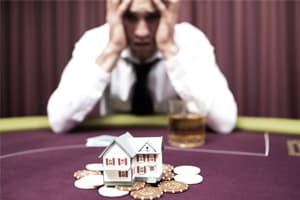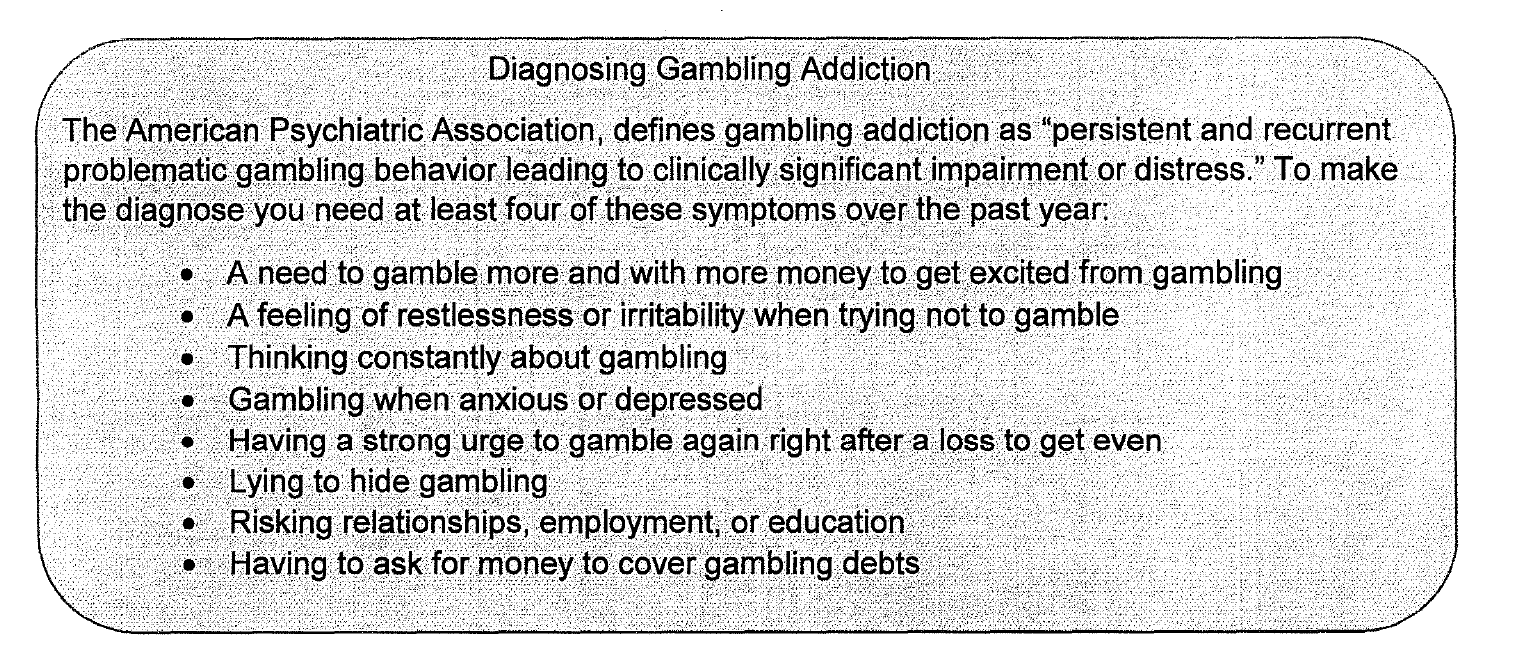|

Online sports betting is now the leading cause of gambling addiction.
When the U.S. Supreme Court overturned the federal ban on sports betting in 2018, it set the stage for an explosion of online sports betting that has swept the country. Online sports betting is convenient, always available, private, immediate, and heavily promoted. And it's now the most common cause of gambling addiction disorder, accounting for more problem gambling than all other types of gambling combined. Today, close to 50 percent of all sports wagering happens online, and a recent study found that 16% of online gamblers meet the criteria for gambling addiction. The COVID- 19 pandemic is likely to increase problem gambling and gambling addiction due to the combination of social isolation, more time spent at home, easy access to online gambling, stress, and boredom. Past research shows that gambling increases in times of stress and anxiety.
WHO IS AT RISK?
Men are more likely to become problem gamblers than women. They tend to be well educated and successful, and they believe that skill is the key to winning rather than luck. Many men started sports betting as adolescents and teens. Sports betting is increasing in women, but the most common female gambler is an older woman who gambles in the casino on a slot machine. Gambling addiction tends to run in families and probably has a genetic component. Some researchers believe that inherited genes may account for 50%of gambling addiction risk. Other risk factors include having a personality type that is competitive, restless, and easily bored. Mental health disorders like posttraumatic stress disorder and drug or alcohol abuse have also been linked to compulsive gambling. In one study, people with mental health disorders were 17 times more likely to develop problem gambling than gamblers without mental health issues.
CAUSES OF GAMBLING ADDICTION:
Drug and alcohol addictions are called substance-abuse addictions. Gambling and sexual addiction are called behavioral issues, but all these addictions change the brain in similar ways. Addiction causes the release of chemical messengers in the brain called dopamine and serotonin. These messages are responsible for feelings of reward and euphoria. Over time, the brain becomes dependent on these messages and craves them when it is not stimulated by the addictive behavior.

TREATMENT
Gambling addiction is a treatable disease, with several approaches supported by strong research. In most cases, a combination of psychological, pharmacological, and behavioral treatments is most effective.
Behavioral therapy includes cognitive-behavioral psychotherapy to understand cravings and harmful behaviors, and to substitute unhealthy behaviors with positive and healthy choices.
Pharmacologic approaches include medication that improves mood, such as antidepressants and mood stabilizers. Medications may also be used to treat co-occurring conditions, such as depression, anxiety, or attention deficit hyperactive disorder. Medications that block opioid receptors may help reduce compulsive gambling.
Long-term follow-up and support from a 12-step program like Gamblers Anonymous can be very helpful. A new theory pioneered at GIA Miami is transcranial magnetic stimulation (TMS), which has been shown to help people with compulsive gambling. TMS uses small magnetic fields to gently coordinate brain activity in the parts of the brain that control decision-making. TMS is done through the skin without any incision and is a painless treatment. TMS is combined with behavioral and pharmacological treatment to develop a personally tailored recovery plan.
HOW TO GET HELP
A gambling addiction can have devastating consequences on your relationships, career, or education. It can empty your bank account and leave you deeply in debt. Gambling addiction also increases the risk of depression and suicide. Unfortunately, studies show that only one in ten problem gamblers seek help. They may not recognize gambling as an addictive disease that can be treated. If you or someone you know has four or more of the red flag symptoms for gambling addiction listed below, help is available. You can find a 24-hour National Problem Gambling Helpline at (800) 522-4700 and other resources at www.npgambling.org.
|
